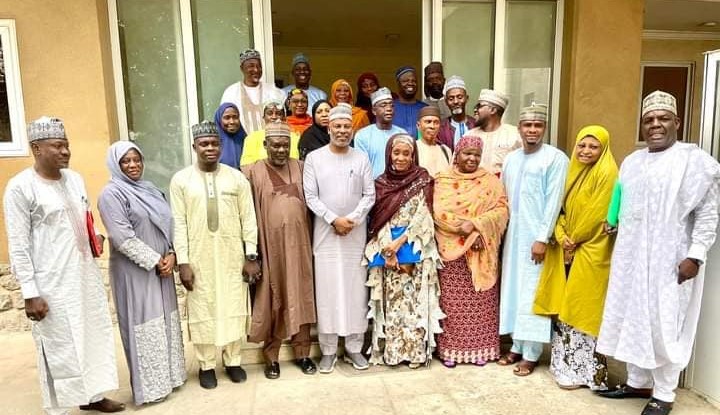Katsina assembly to enact law on 35% affirmative action for women in education sector

The Katsina house of assembly says it will ensure the bill seeking to support 35 percent affirmative action for women in the education sector is enacted.
Nasir Yahaya-Daura, the speaker of the house, spoke during a meeting organised by the United Nations Children’s Fund (UNICEF) and High Level Women Advocacy (HILWA), in Kano.
The bill was sponsored by HILWA and has passed the second reading at the state assembly.
Yahaya-Daura said the lawmakers are committed to ensuring the bill is passed, adding that investing in the education of girls is crucial to the development of the state.
“We recognise that investing in the education of our girls is an investment that will bring rapid development in our dear state. Our commitment goes beyond mere words,” NAN quoted the speaker as saying.
“That is why the current state legislature remains committed to enacting laws that will boost the girl-child enrollment in schools.
“On the issue of gender representation in governance, I am pleased to inform you that both the state government and the legislature are in support of the policy.
“We want to assure you that as soon as the committee presents its report, we are going to pass the bill without further delay.”
The speaker added that the house of assembly is committed to supporting HILWA in passing bills that will improve women’s participation in education and governance.
Also Speaking, Mariya Abdullahi, chairperson of HILWA, expressed concern over the lack of access to education faced by women in decision-making positions.
“It is our strong belief that effective participation of women in providing education will be a very critical strategy in girls education programmes,” Abdullahi said.
“When more women participate in influencing decisions on policies and practices in the education sector, learning conditions will be more favourable for girls and even boys.
“Also, more women in the sector as teachers, head teachers, and local government education secretaries will, directly and indirectly, provide opportunities and encourage more girls to enrol and complete their education.”

